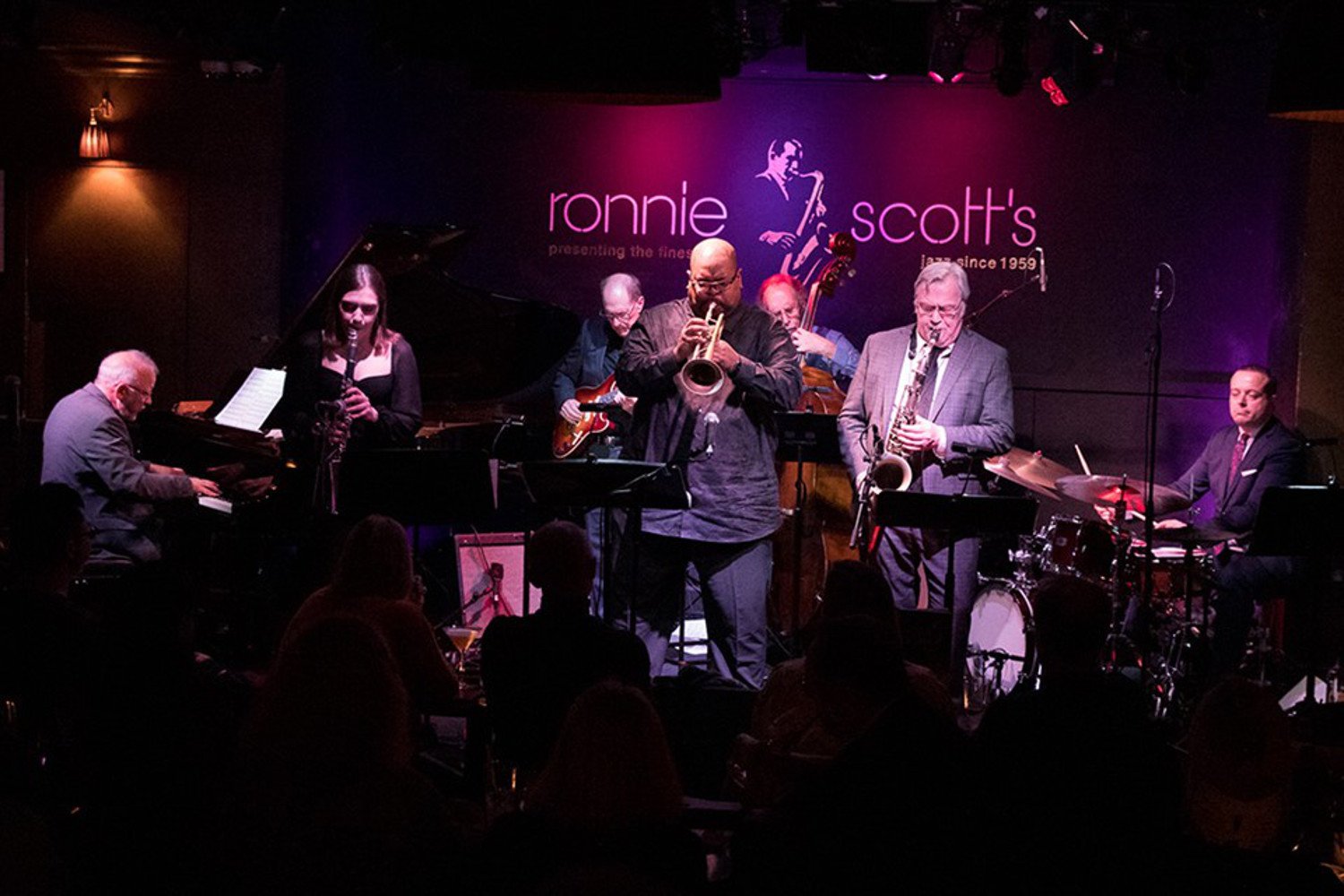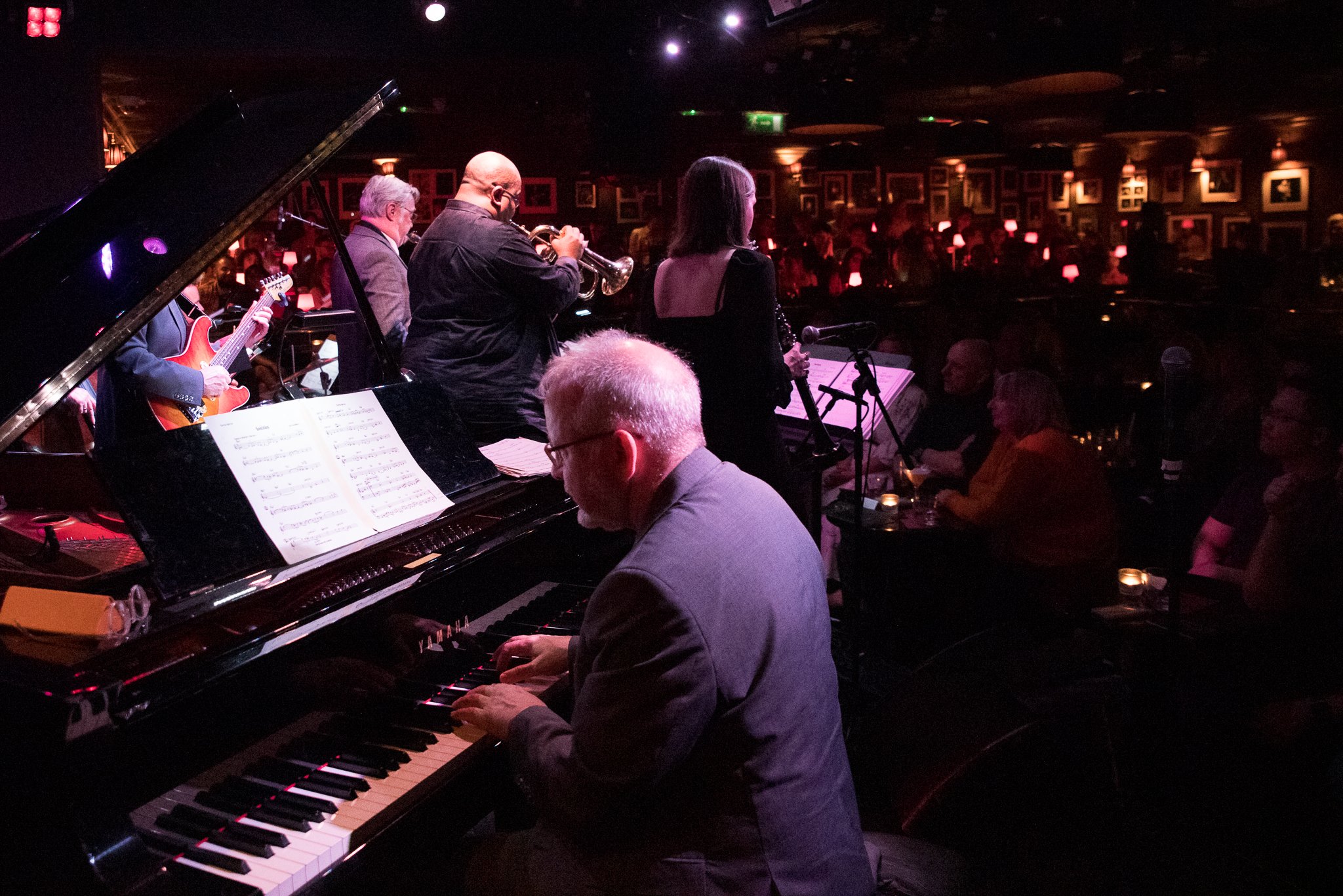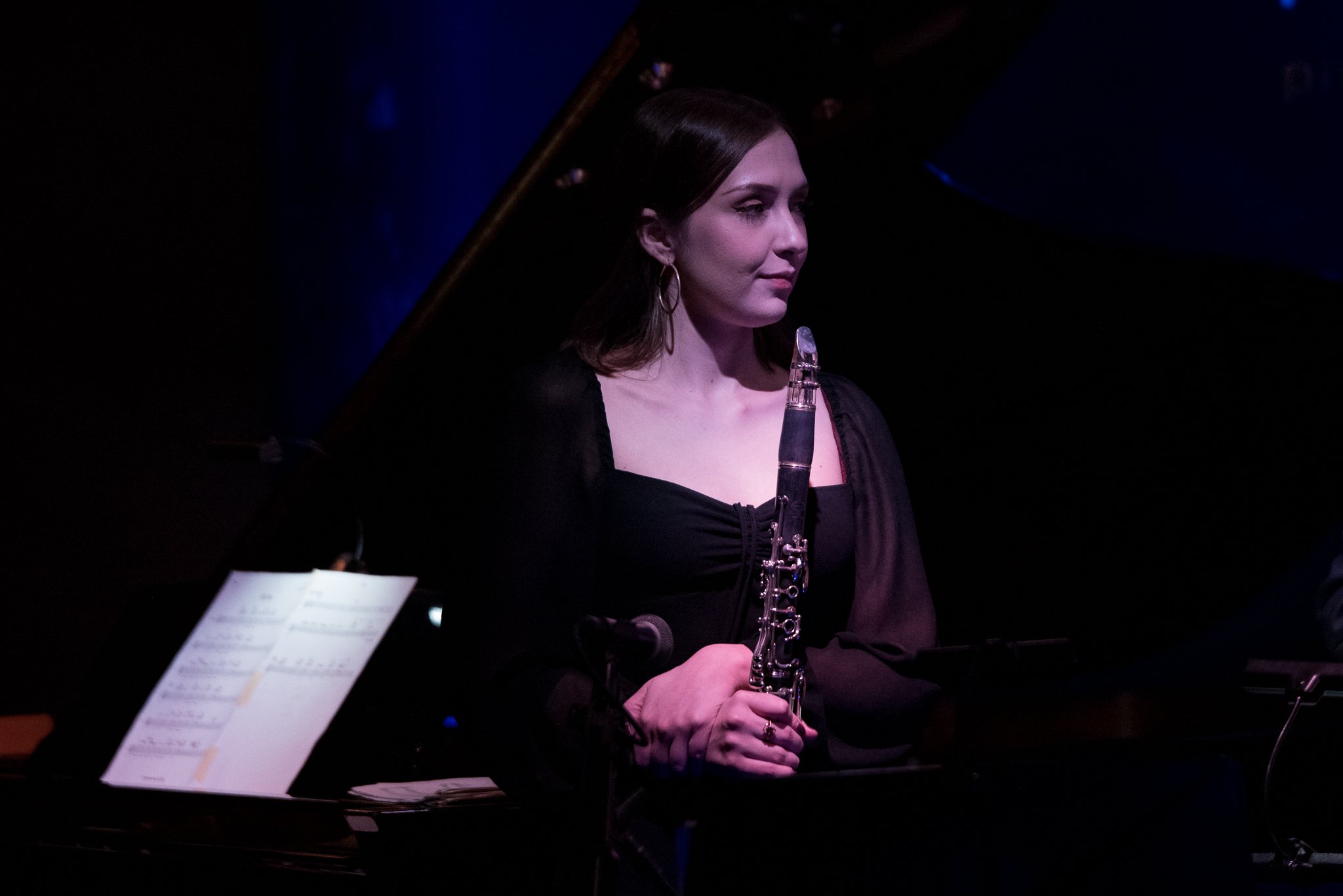London JAZZNEWS Live Review

11 May 2022.
Live review by Charles Rees
The Canadian Jazz Collective at Ronnie Scott’s
Kirk MacDonald, Derrick Gardner, Lorne Lofsky, Brian Dickinson, Neil Swainson, Bernd Reiter & Virginia MacDonald

The Canadian Jazz Collective (L-R: Brian Dickinson, Virginia MacDonald, Lorne Lofsky, Derrick Gardner, Neil Swainson, Kirk MacDonald & Bernd Reiter). Photo credit: Robert Crowley
The modern jazz audience has always been well acquainted with the sounds being pioneered in New York and other American cities. British jazz fans are also fairly tuned-in to the happenings of our own scene, with an additional, if somewhat occluded view of mainland Europe. But Canadian jazz, despite the existence of some influential and beloved individual artists – Oscar Peterson, Gil Evans, Kenny Wheeler and, in more recent years, Ingrid and Christine Jensen – tends to remain an enigma.
So I headed to Ronnie Scott’s and to the Canadian Jazz Collective’s concert with open ears, not entirely sure what to expect. It was something of a surprise to hear the set kick off with an old-school swing number, “Dig That”. The tune was by the group’s trumpet player and co-leader, Derrick Gardner; he explained it was his answer to Hank Mobley’s “Dig Dis” from the 1960 classic Soul Station.
Aside from being an enjoyable throwback to an often neglected part of the past, it served well as a meet-and-greet for the band, with each player performing a brief solo; a nice touch that gave an air of familiarity to what followed. Gardner’s solo in particular was memorable for his impressive display of language and range,reminiscent of Dizzy Gillespie. His other solos during night seemed to channel other trumpeters, from Freddie Hubbard and Woody Shaw to Clifford Brown and Wynton Marsalis. It was a thrill to hear a player with such obvious reverence for the tradition.
Guitarist Lorne Lofsky contributed the second chart of the night, called “Live from the Apollo”, which was inspired by the moon landings. It was a highly complex number based around the chord changes to John Coltrane’s “Giant Steps”, the type of chart that would challenge any player faced with the daunting task of improvising on it. Tenor saxophonist Kirk MacDonald, on the other hand, seemed to relish in it, blowing ferociously yet effortlessly over the changes.
Lofsky also contributed a charming number called “The Time Being”, which was followed by three movements from an eight-movement suite by MacDonald titled “Life Cycles”. The suite seemed to draw harmonic influence from the New York based sound developed by players such as Richie Beirach in the ’70s, but also from the rich soundscape of European jazz from the same era. The mix of American and European (primarily British) influences was a subtle theme of the set.

Brian Dickinson. Photo credit Robert Crowley
Brian Dickinson‘s masterful piano playing was a solid anchor during these more complex charts. He is perhaps most familiar from the enchanting duo album he made with Kenny Wheeler,
Still Waters (recorded1998, issued 2005). His playing channeled the spirit of Kenny Kirkland, with a healthy blend of John Taylor,especially apparent in his solos. He is also a fine composer and arranger (his big band album, Music for Jazz Orchestra, is a gem); it would have been good to hear (at least) one of his compositions…
While on the topic of musical anchors, Austrian-born drummer Bernd Reiter selflessly propelled the ensemble as all great drummers do, and with a big grin on his face at every moment. His playing was complemented nicely by the bass work of Neil Swainson, whose note clarity and tone made his solos most enjoyable. The final instrument, as of yet unmentioned, was clarinet; an interesting substitution in lieu of an alto sax or trombone, but one that paid off nicely and gave the ensemble a distinctive sound.

Virginia MacDonald. Photo credit: Robert Crowley
This role fell to Kirk MacDonald’s daughter, Virginia MacDonald. Her playing was exemplary, with technical infallibility and never the slightest hint of a split or a squeak combined with a full focussed sound and a dexterity reminiscent of Eddie Daniels. Her improvised lines were equally engaging, putting one in mind of what a young Branford Marsalis was pushing in the ’80s. It is refreshing to hear the clarinet making its mark so effectively in a contemporary jazz setting.
The set closed with another of Gardner’s compositions, called “Terre du Sable”, a dedication to the founder of his city of birth, Chicago. This was then followed by Frank Loesser’s popular standard “I’ve Never Been In Love Before” as the encore, with each player again playing brief solos in succession, giving the set a nice symmetry.The audience clearly appreciated it too.
This was a most enjoyable evening, featuring first-class players and compositions. Let us hope that more players from the Canadian scene will pass through the UK in the future. If the packed house at Ronnie Scott’s is any indication, there is clearly a market for it.




